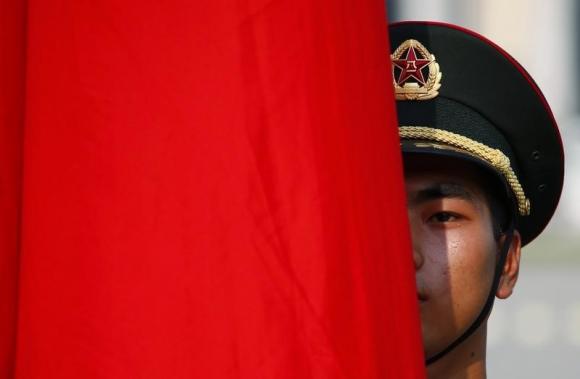BEIJING – Masked militants attacked civilians, police and officials last week in China's far western region of Xinjiang leading to almost 100 deaths, the government said on Sunday, giving fresh details on one of the worst incidents of unrest in years.
The Xinjiang government said 59 "terrorists" were gunned down by security forces in Shache county in Xinjiang's far south, while 37 civilians were killed in the attacks on July 28.
Authorities reported the incident a day later, saying dozens of people had been killed when knife-wielding attackers had staged assaults in two towns in the region.
It is unclear why the government waited so long to announce detailed casualties, though bad news has sometimes been covered up or delayed in the past. Due to tight security, visits by foreign journalists are very difficult, making an independent assessment of the situation almost impossible.
"This was a serious terrorist attack incident which has links to domestic and overseas terrorist organisations and was organised, premeditated, carefully planned and evil," the Xinjiang government said on its official news website (www.ts.cn) in the early hours of Sunday morning.
The militants attacked a police station and government offices in Elixku town, before moving on to the nearby town of Huangdi, targeting civilians and smashing vehicles as they went, it added.
They also set up roadblocks on a main road and stopped vehicles, attacking passengers and threatening others with knives and axes into joining their attack, the statement said, citing police.
Police confiscated long knives, axes as well as banners calling for jihad, the government said.
Xinjiang, home to the Muslim Uighur people, who speak a Turkic language, has been beset for years by violence that the government blames on Islamist militants or separatists who it says want an independent state called East Turkestan.
Exiled Uighur groups and human rights activists say the government's repressive policies in Xinjiang, including controls on Islam, have provoked unrest, a claim Beijing denies.
The attack took place at the end of the holy month of Ramadan, which officials had tried to get Muslims in Xinjiang to ignore in an indication of what rights groups say is discrimination targeting the Uighurs.
The Xinjiang government named a man with a Uighur sounding name as the ringleader, Nuramat Sawut, who it said had close ties with militant East Turkestan Islamic Movement and had been involved in Islamist separatist activities since last year.
"Since the beginning of the Islamic holy month of Ramadan, the group had had multiple gatherings in remote places during which they made attack plans and prepared tools for their violent acts," the government added.
The dead included 35 Han Chinese civilians and two ethnic Uighurs who held senior local government positions, it said, while 215 suspected attackers were detained.
Hundreds have been killed in Xinjiang in the past year and a half and the last week saw a series of deadly incidents, including the murder of a prominent pro-government imam at a major mosque in the old Silk Road city of Kashgar.
Dilxat Raxit, spokesman for the exiled World Uyghur Congress, said the government's violent response and continued repression could only make things worse.
"If Beijing does not change its policy of extreme repression, this could lead to even more clashes," he said in comments emailed to Reuters.
But Xinjiang's top official, Communist Party chief Zhang Chunxian, said there would be no let up in the government fight against militants.
"Fighting violent terror needs thorough resolution and cannot lack firmness and we must pursue the tottering enemy with force," Zhang said in the statement.
Adding to the tensions, China last week indicted prominent Uighur professor Ilham Tohti, who has championed the rights of his community, on separatism charges.
His case has drawn attention from the United States and European Union and is seen by rights groups as part of a broader crackdown on dissent in Xinjiang.
Xinjiang has rich coal, oil and gas reserves and is strategically located on the borders of Central Asia, Afghanistan, Pakistan and India.





















































